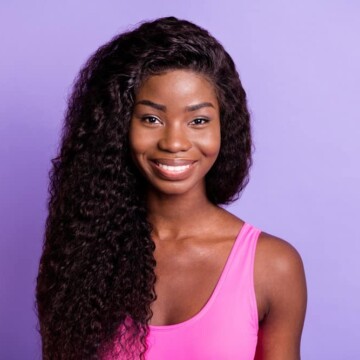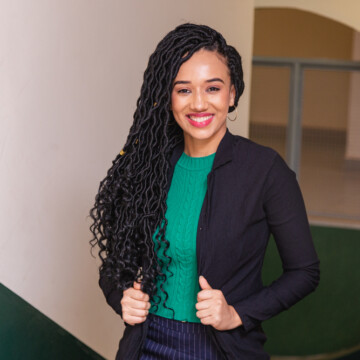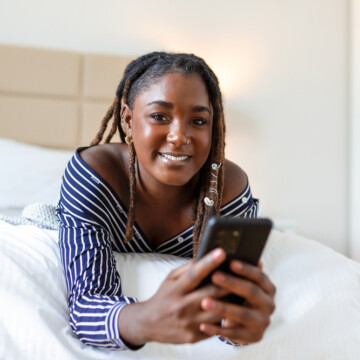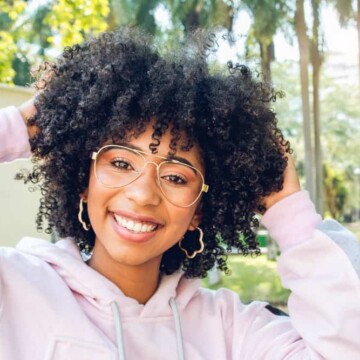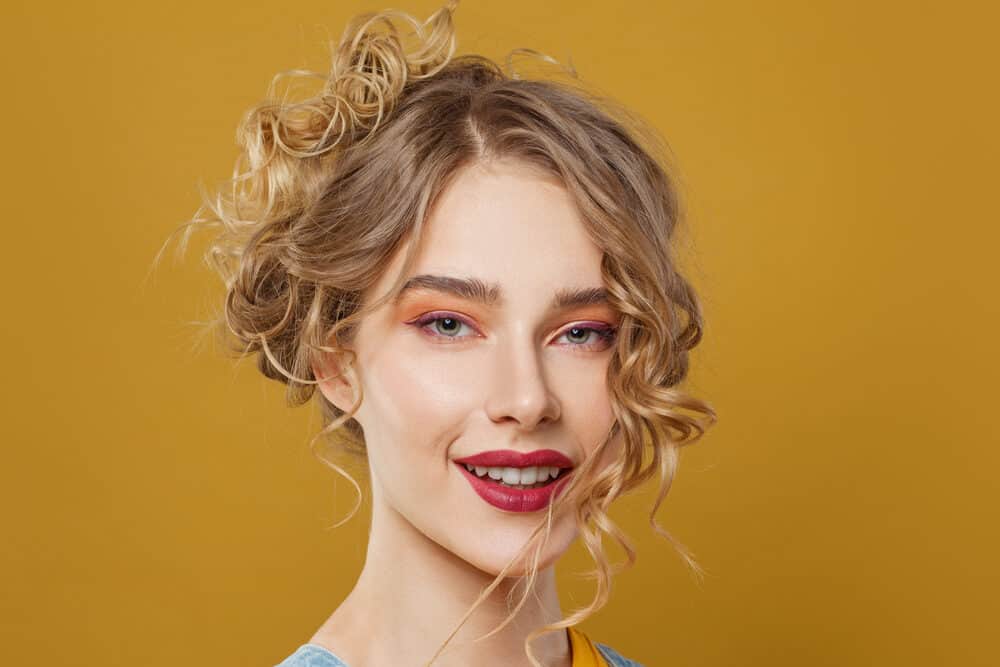
Have you noticed that your blonde tresses aren't as bright as they used to be? Or are you a brunette who was blonde once upon a time? If so, you may be wondering, "Why did my blonde hair turn brown?"
Many natural blondes go darker over time and end up brunette by early adolescence or even later. If you're wondering why that happened, we can help. In this article, we'll reveal several reasons why blonde hair turns brown. Let's get right into it!
Table of Contents
A Quick Look at the Genetics of Blonde Hair
Before we get into the culprits behind darkening hair, you need to know why you were blonde in the first place. The color of our hair, skin, and eyes depends on our unique distribution of melanin (natural pigment). There are two main types of melanin: pheomelanin and eumelanin.
Eumelanin is responsible for dark hair, skin, and eyes, and we all have varying quantities of it. Dark-haired people have a surplus of eumelanin, while blondes have very little of it.
We’re all born with genes that determine how much melanin our bodies make.
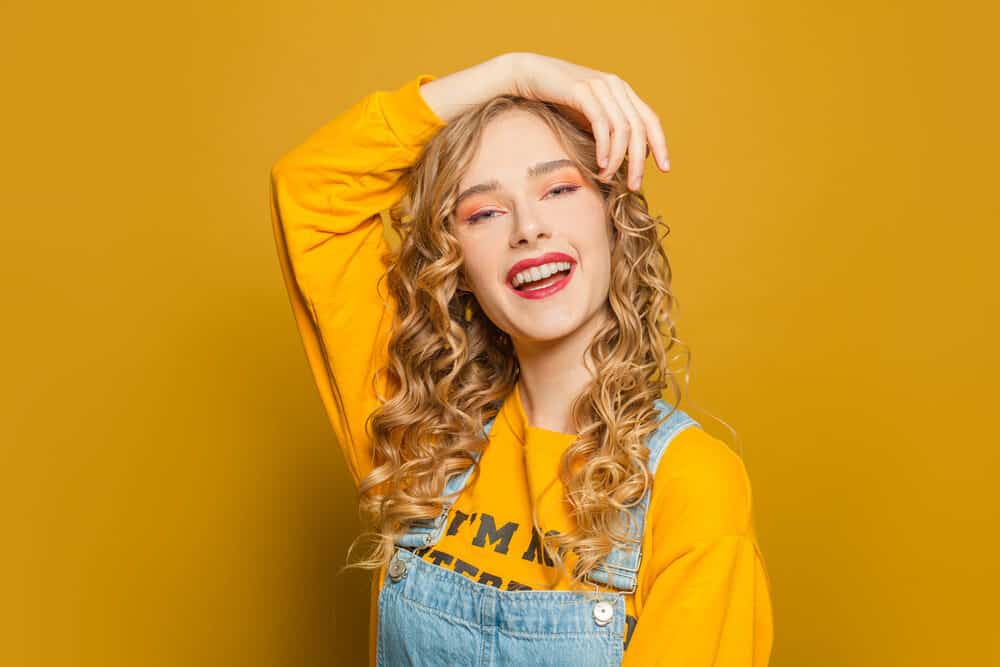
Why Did My Blonde Hair Turn Brown?
Blonde hair turns brown primarily due to hormonal changes and the natural increase in eumelanin. Eumelanin is a type of melanin pigment responsible for darker hair as we age. Initially, blondes have low levels of eumelanin. The amount increases over time due to genetic factors and hormonal shifts.
Changes often occur during life stages like puberty or pregnancy. Environmental elements such as exposure to hard water, chlorine, and sun can also accelerate this change. These factors lead to a gradual darkening of your blonde hair.
Key Takeaways
- Hormonal Changes and Age. Natural blondes often notice their hair becoming darker as they get older. This happens because of hormonal changes and an increase in eumelanin production. These changes can occur during puberty, early schooling, or pregnancy.
- Water Quality. Hard water can darken hair. This happens because it contains minerals that can deposit onto the hair and affect its color. Older buildings with copper or lead pipes can also contribute to hair darkening.
- Product and Environmental Build-up. Regularly using hair products such as gel, hairspray, and conditioner and being exposed to air pollution can lead to build-up. Build-up can darken blonde hair.
- Heat Damage. Using heat styling tools too often without protecting your hair can make natural blonde hair darker.
- Preventive Measures. To keep your natural blonde hair color, you can do several things. Use water filters to remove impurities from your hair during showers and when you're washing your hair. Use chelating or clarifying shampoos to cleanse your hair. Avoid using excessive heat styling on your hair. Protect your hair from environmental factors.
Now that you know the basics concerning why you had blonde hair, it's time to get into the reasons why your blonde hair turned brown. Some of the reasons may surprise you!
Your Hair Pigment Genes Were Activated
Many aren't aware that pigment genes can turn on and off, but it's a relatively common phenomenon. Your hair pigment genes may be activated or deactivated based on a variety of factors, one of the most common being your hormones.
You could experience a hormone-related hair color shift at any age (e.g., white or gray hair), but here are the most probable times hormones could be to blame:
- Around the time you start school - about 6 years old.
- During puberty - from middle school to high school.
- During or after pregnancy.
*Note that many other things can cause genes to activate or deactivate.
So, if some of your previously inactive eumelanin-producing genes were suddenly activated, this could be to blame for your color change.
In addition to this, eumelanin production generally speeds up as you get older, and this can cause your blonde hair to take on a darker hue. Researchers are not exactly sure why eumelanin production speeds up with age.
Your Water Is Betraying You
Another cause of blonde hair discoloration is hard water. Hard water has a high mineral count. These minerals can fill your hair shaft, causing it to become brassy and appear darker.
Around 85% of American households have hard water. Even if you are among the lucky few who don’t have hard water, your plumbing might still be a problem.
If you live in an older building with copper or lead pipes, the minerals from those pipes can still leave you with darkening hair. Chlorinated water can also result in a color change.
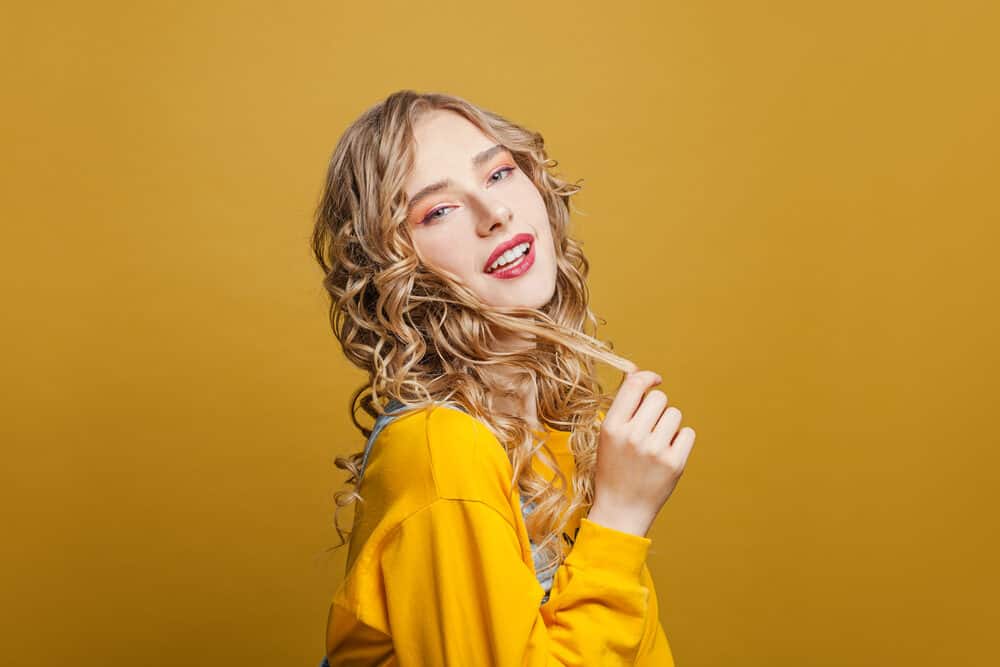
You Have Build-up
We all need a fresh start now and isn't, and your hair isn’t exempt. Almost everything we put on our hair has the potential to build up: hair gel, hairspray, and conditioner are common ones.
Build-up coats the hair shaft, causing it to take on a darker hue.
But even if you don’t use many products on your hair, you can still get build-up from air pollution. Your blonde hair acts like a sponge and can suck up smog, smoke, and other things in the air.
You’ve Burned Your Hair
Heat can also cause your natural blond hair to darken. If you’ve ever seen hair burn, you’ll notice that it takes on a darker shade. This same thing can happen to your hair if you overuse heat and neglect to use a heat protectant.
You Went Overboard With the Purple Shampoo
Many blondes who notice their hair getting darker or brassy use purple shampoo or conditioner to brighten it back up. These products deposit a small amount of purple dye onto the outer hair shaft to neutralize any wonky tones.
But if you use purple shampoo during every wash, it can work against your hair, making it look darker.
How to Prevent Blonde Hair From Darkening
If the cause of your darkening hair is genetic, there’s nothing you can do about it (i.e., your hair follicles produce more melanin). However, if an outside influence is to blame, there are some things that can do to keep your tresses from darkening further.
After all, if you don’t do anything to prevent it, your hair may continue to darken. Keep reading to find out what you can do to preserve your blonde hue (or what’s left of your light hair color):
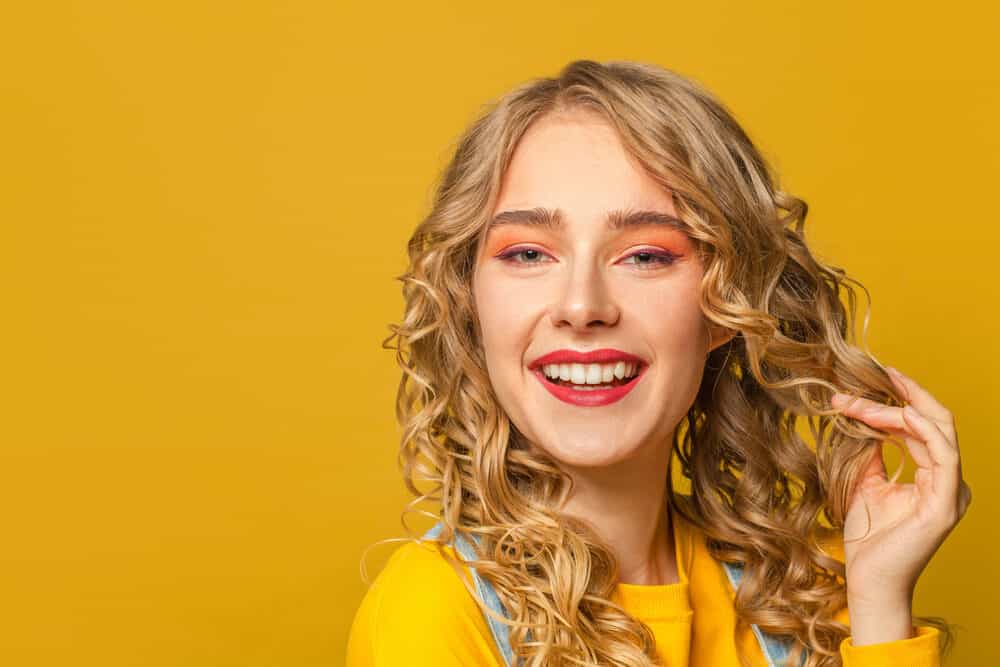
Stop Brassiness
Brassy yellow and orange tones can creep up in natural blonde hair just like they can in bleached blonde hair.
To remedy this, protect your hair from chlorinated water. Before hopping in the pool, wet your hair down with clean water from your shower or tap, and then put on a shower cap.
You can also slather on a ton of hair conditioner before covering it up. Doing so will keep the chlorine from coming in contact with your hair.
Address Your Hard Water Issue
Hard water is one of the biggest contributors to unwanted hair color change. To combat this, invest in a showerhead filter. It will rid your water of chlorine, minerals, and other contaminants that can darken your hair over time.
In addition to that, you can try the following:
- Use a chelating shampoo. Chelating shampoos are stronger than clarifying shampoos and help strip the minerals from your hair. Ion's Hard Water Shampoo is one of the best chelating shampoos on the market.
- Do a deep clarifying treatment. If your blonde hair has already taken on some unwanted brassy or darker tones due to hard water, you might need a stronger clarifying treatment. You can either schedule a clarifying treatment at a salon (often called a “crystal treatment”) or perform one yourself at home. Malibu C Blondes Wellness Hair Remedy packets are a single-use treatment made with Vitamin C and Citric Acid. This treatment not only helps strip out the mineral build-up but also brightens and restores shine.
Keep Your Hair Buildup-Free
With all of the hair products and treatments we use on a regular basis, many find it difficult to prevent buildup. But you can do it if you have the right product - namely, clarifying shampoo.
Clarifying shampoo is similar to regular shampoo but with more cleansing power. Depending on your hair type, you may need to use it as often as once a week. We urge you not to use it more often than that - you'll leave your hair dry and crunchy.
Lay Off the Heat
Since excessive heat can lead to darkening tresses, all you’ll need to do is limit your heat usage and always use a heat protectant. Whenever you do use heat, keep the temperature as low as possible.
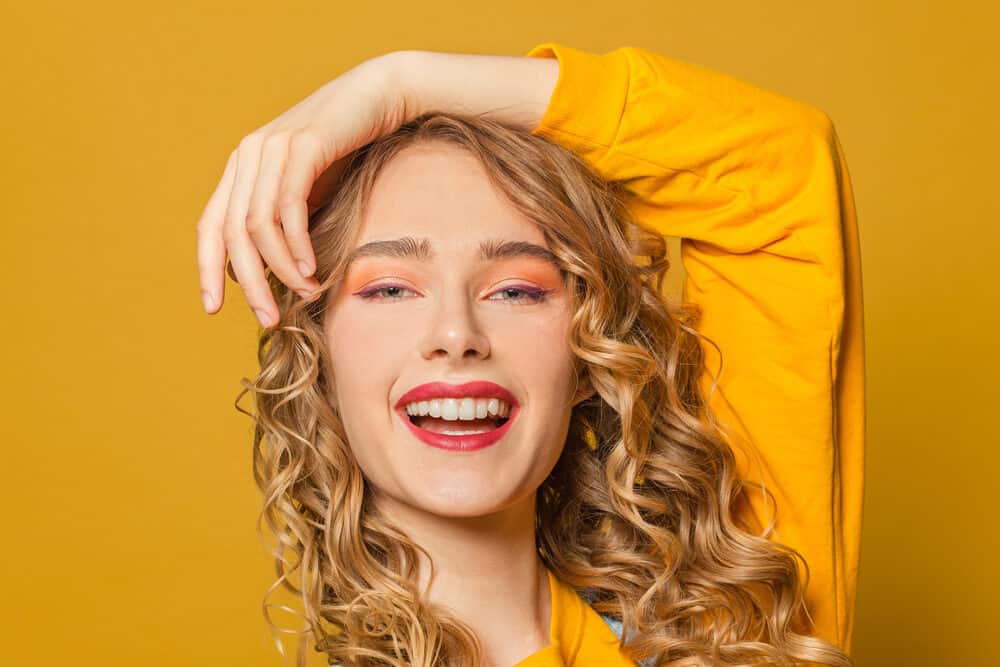
If Nothing Works
If the above remedies don’t slow or stop the darkening of your hair, you have a couple of options:
- Accept the fact that your hair is meant to be dark.
- Take steps to lighten your tresses with natural or chemical methods.
- Lemon juice - Spray your hair with lemon juice and olive oil (equal parts), and then get some sunlight outside for about a half-hour. Don’t forget to wear sunscreen to protect your skin. After the session, condition or deep condition your hair to restore its moisture levels. Repeat this treatment every couple of days or so until you achieve your desired level of lightening.
- Use bleach or hair dye to lighten your strands chemically. Hair dye is a better choice than bleach when it comes to the health of your hair. But you’ll be able to get more drastic lightening results with bleach.
Frequently Asked Questions
Welcome to our FAQ section. We answer your most common questions about why blonde hair turns brown. Here, you'll find helpful tips to understand and manage this natural hair color change.
Why Is My Dyed Blonde Hair Turning Brown?
Dyed blonde hair may turn brown due to several factors, including sun exposure, harsh chemical treatments, and hair build-up. The color change is often a result of the dye fading over time. Dye fading is coupled with the underlying pigment of your hair and the effect of environmental elements. Mineral deposits in water are an example of an environmental factor. Regular maintenance with a color-safe, sulfate-free shampoo can help preserve your blonde hue.
What Age Does Blonde Hair Turn Brown?
Blonde hair typically starts turning brown in early adolescence. However, the exact age at which hair will turn brown can vary. This change is driven by hormonal shifts that increase the production of eumelanin. Eumelanin is a melanin pigment responsible for darker hair colors. Genetic factors play a significant role in this transition, influencing when and how much the natural hair color darkens.
How Can I Make My Hair Blonde Again?
You can use hair dyes designed explicitly for blonde locks to make hair blonde again. It is important to choose a cool-toned hair color and apply it following the manufacturer's instructions. For a more natural approach, remedies like lemon juice and hydrogen peroxide can lighten hair. However, please use these natural solutions cautiously because of their potential hair-damaging effects. Avoiding harsh chemicals is a key component of your hair care regimen.
Can Brown Hair Turn Back to Blonde?
Naturally, brown hair cannot turn back to blonde without chemical intervention. Hair dyes are the most effective option for those seeking to revert to a blonde bombshell presence. It's crucial to use gentle dyes on hair strands to avoid damage. Remember, transitioning from brown to blonde often requires multiple treatments and regular maintenance.
Will Blonde to Brown Fade?
Yes, the transition from blonde to brown can fade over time, especially if the brown color is achieved through hair dyes. Factors like hair care routine, exposure to sunlight, and the frequency of washing influence how quickly your hair color will fade. Use products that prevent fading to maintain the brown color for a longer period. Examples include leave-in conditioners and sulfate-free shampoos.
How Do I Keep My Natural Blonde Hair From Darkening?
Avoid being in the sun too much to keep blonde hair from getting darker. Also, shield your hair from things like chlorine and mineral-rich water. Using a water filter can help reduce mineral deposits. Regularly cleanse your hair with a gentle, sulfate-free shampoo to remove build-up and maintain hair health. Additionally, avoiding harsh chemical treatments can help preserve your natural color.
- Why Is My Hair Color Changing?
- Reasons to Dye Your Hair
- Black People With Natural Blonde Hair
- What Is the Rarest Hair Color?
We hope that this article has given you some helpful insight into why your hair has darkened over time. With the information in this article, you can take calculated steps to reduce the chances of your hair darkening further.

